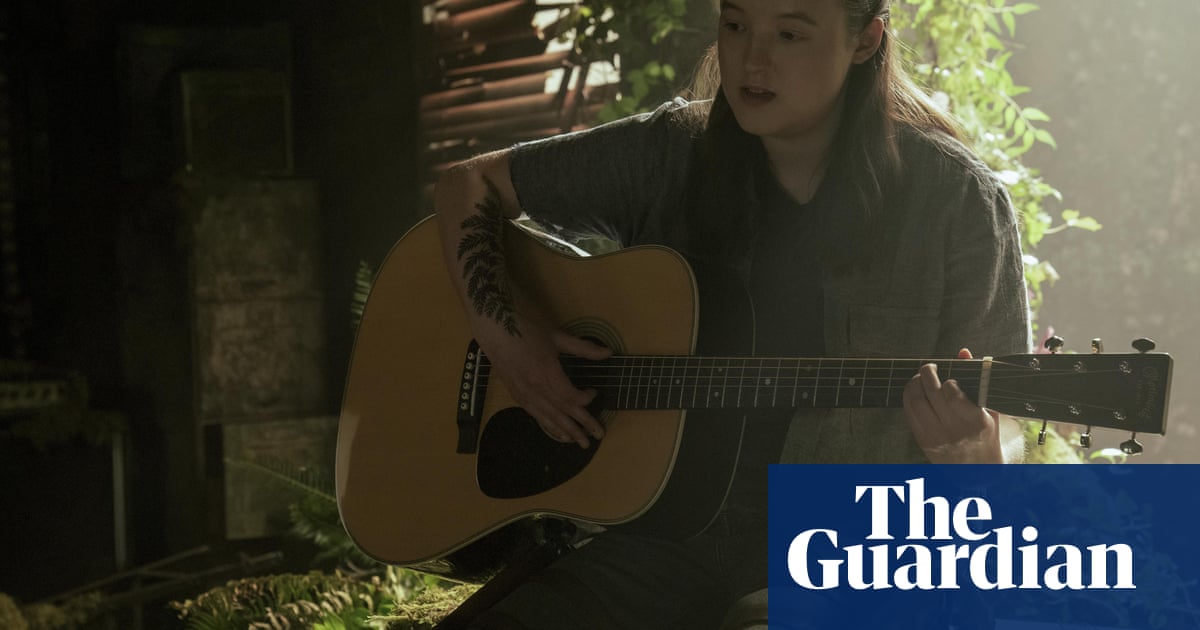This week’s episode ofThe Last of Uscontained a moment that froze the blood. For a split second, the hearts of the viewing audience rose into their throats in horror. This is a show that has presented us with terror after nightmarish terror but, even by these exceptional standards, this was almost too much to bear. I am talking, of course, about the scene where Ellie started playing a Pearl Jam song on a guitar.
Within the broader world of The Last of Us, the song – entitled Future Days – is of enormous importance. If you’ve played the game, you’ll know the scene it hints at. It’s devastating. You’ll also know that, if the show hews closely to the source material, the general theme of guitars will eventually reduce the audience to emotional husks, teeing up the saddest, most hopeless ending to any major piece of storytelling in years.
But if you haven’t played the game, the sight of Ellie picking up a guitar for the second time in as many weeks will have been a cause for alarm. Last week’s episode ground to a standstill so Ellie could sing Take on Me by a-ha all the way through, and the worry was that the same thing would happen again. And, without wanting to sound like one of those dismal review-bombers, I didn’t sign up for no musical.
The fact that there could have even potentially been two consecutive acoustic sing-along episodes is indicative of a bigger problem with the shape of season two. It finds itself falling between two stools. On one hand, Joel is dead. He died in episode two, in what is likely to be the high point of the entire series. On the other hand, season three will turn the whole show on its head. Again, if it sticks to the blueprint laid out by the game, the focus will turn to Abby, the young woman who killed Joel. It promises to be a bravura piece of storytelling, recontextualising a character who seems like a complete monster.
But now we find ourselves stuck in the doldrums. We have had three episodes without Joel or Abby, leaving us with the story of Ellie going to Seattle to get her revenge. And, boy, those three episodes have dragged. There have been meandering side plots about religious cults, long soliloquies by Jeffrey Wright, a love story that might be sweet but feels relatively unearned and, of course, the entirety of Take On Me by A-Ha played on an acoustic guitar.
The biggest problem is Dina. As Ellie’s love interest, she should play an important role in the show, awakening her to a world beyond pure survival. This is something the show knows how to do, the stand-alone season one episode starring Nick Offerman and Murray Bartlett being a shining example. But right now Dina feels a little grafted on, like a makeshift Joel replacement who exists solely to prevent the show from turning into a series of episodes where Ellie grunts in a succession of corridors by herself.
Again, this might all pay off down the line. Dina, Abby, the cults, even the guitars will eventually have satisfying conclusions. But we’re talking a long way down the line. This week it was revealed that season three of The Last of Us won’t start filming until next year. Given that there has typically been a year and a half gap between filming and broadcast, this means that we’re expected to hold all these glimpses and hints in our heads until the last half of 2027.
The Last of Us has two episodes left this season. One of them will be a stand-alone story about a character who, in the game, is seen only as a photograph. There’s a good chance that the episode will be sweet and moving, but it doesn’t offer a lot of hope in terms of plot propulsion. We’re still left with the sense that The Last of Us has been spinning its wheels since Joel’s death.
Perhaps, in the grander scheme of things, this stretch was always designed as a breather, a resting spot between the intensity of what has been and what’s yet to come. But given the yawning chasm between seasons, that breather is starting to look a little like suspended animation. Let’s hope things pick up in 2027.
